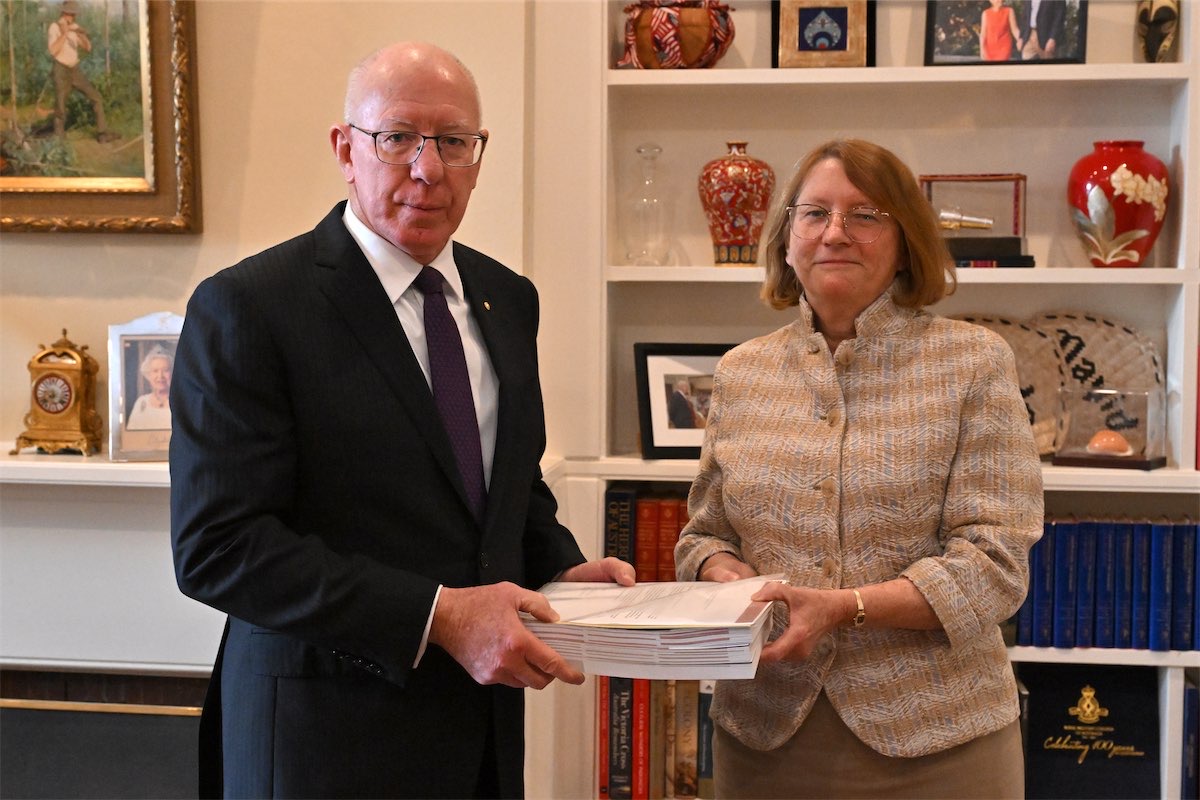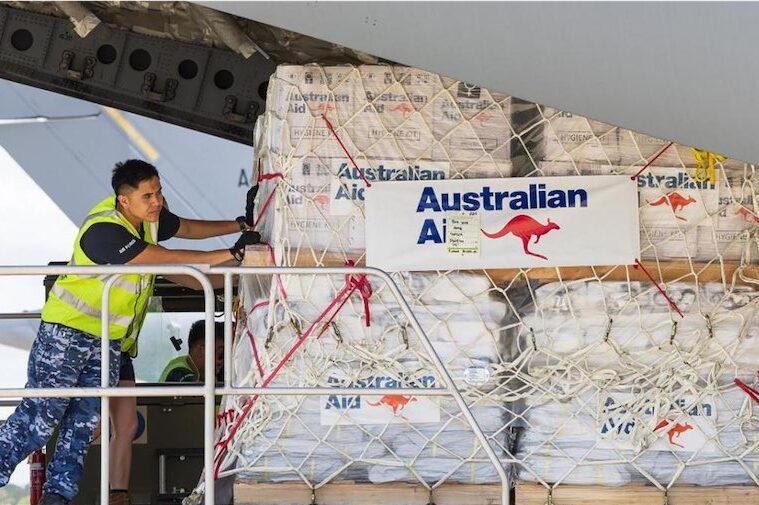
By Tess Ikonomou and Paul Osborne in Canberra
SENIOR personnel behind the unlawful robodebt scheme will be referred for civil and criminal prosecution as a royal commissioner lashes the “dishonesty and collusion” behind the program.
Former Queensland chief justice Catherine Holmes on Friday handed a 990-page report containing 57 recommendations to Governor-General David Hurley.
The report also included a sealed chapter that is not part of the bound report.
“It recommends the referral of individuals for civil action or criminal prosecution,” Ms Holmes said in the report.
“I recommend that this additional chapter remain sealed and not be tabled with the rest of the report so as not to prejudice the conduct of any future civil action or criminal prosecution.”
The commissioner has also referred parts of her report to the Australian Public Service Commission, the National Anti-Corruption Commission, the president of the Law Society of the ACT and the Australian Federal Police.
“It is remarkable how little interest there seems to have been in ensuring the scheme’s legality, how rushed its implementation was, how little thought was given to how it would affect welfare recipients and the lengths to which public servants were prepared to go to oblige ministers on a quest for savings,” she wrote.
“Truly dismaying was the revelation of dishonesty and collusion to prevent the scheme’s lack of legal foundation coming to light.”
The former coalition government launched the scheme to “detect, investigate and deter suspected welfare fraud and non-compliance” in mid-2015 in an effort to save billions of dollars.
The scheme – which became known as robodebt – issued debt notices to people identified through a process called income averaging, which compared reported incomes with tax office data.
More than $750 million was wrongfully recovered from 381,000 people under the scheme.
Victims told the royal commission of their trauma and fear as they received notices and debt collectors made contact.
The inquiry also heard evidence of bureaucrats ignoring serious questions and advice about the legality of the scheme.
The scheme was ruled unlawful by the Federal Court in 2019.
A settlement of $1.2 billion was reached between robodebt victims and the then-government in 2020.
Launched in August last year, the commission issued 200 notices to give information and 180 notices to produce documents.
The federal government produced over 958,000 documents in response.
The inquiry held 303 hours of hearings with 115 witnesses and 1099 submissions were received.
The inquiry, headed by former Queensland chief justice Catherine Holmes, was set up in August 2022 – three months after the Labor government was elected.
Prime Minister Anthony Albanese said ahead of the report’s release the government would take the time to give a “considered response”.
“It should never have happened and the important thing is that it never happened again, because this was a human tragedy with real consequences for people,” he told ABC radio.
“The cabinet has made a decision that will release it (the report) straight away so that the public can examine it.”
Opposition Leader Peter Dutton said he would wait and see what findings were made in the report.
“There is no question about why it’s being dropped today,” he told Nine’s Today program, pointing to the upcoming Fadden by-election.
Who can be trusted?
In a world of spin and confusion, there’s never been a more important time to support independent journalism in Canberra.
If you trust our work online and want to enforce the power of independent voices, I invite you to make a small contribution.
Every dollar of support is invested back into our journalism to help keep citynews.com.au strong and free.
Thank you,
Ian Meikle, editor





Leave a Reply